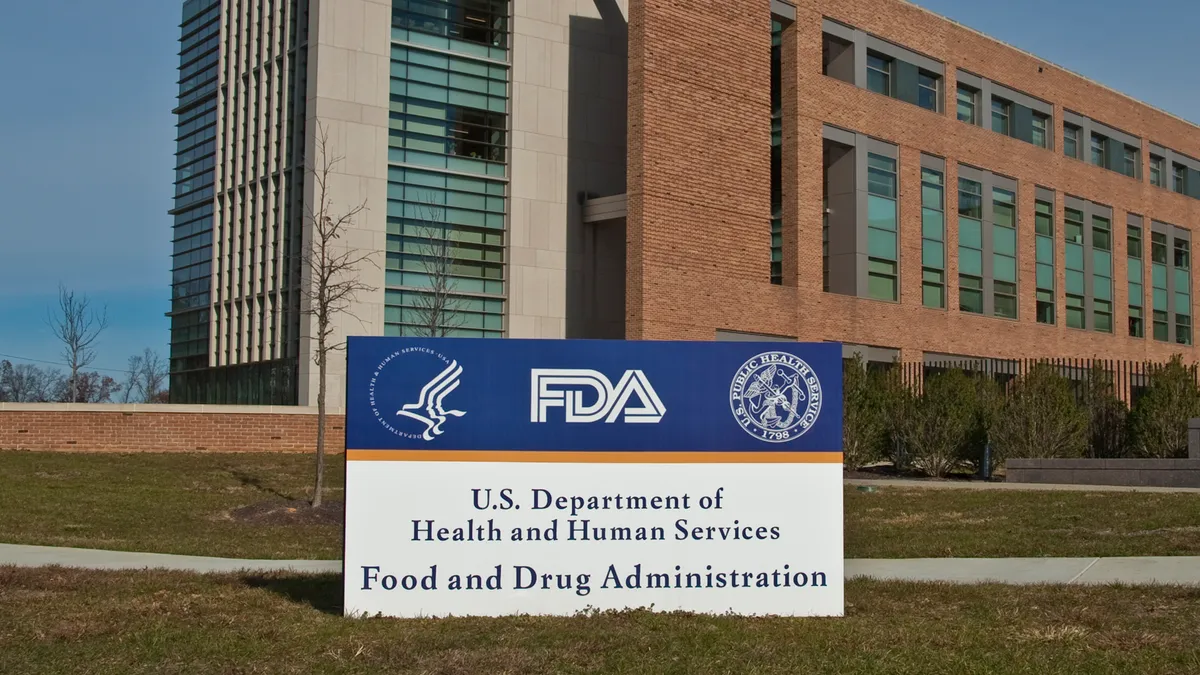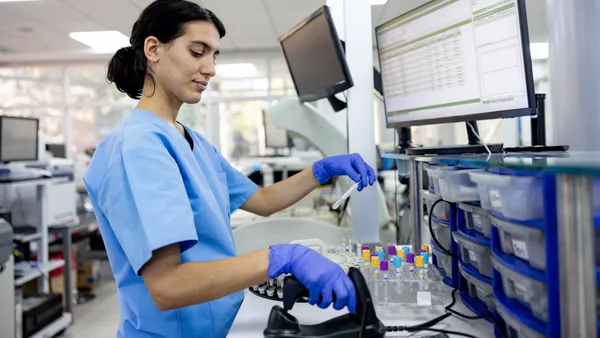Dive Brief:
- U.S. healthcare providers are slated to have their first test to aid in newborn screening for rare genetic disorder Duchenne muscular dystrophy in their arsenal soon: FDA announced Thursday it granted De Novo marketing authorization to a kit from Waltham, Massachusetts-based manufacturer PerkinElmer.
- The regulatory green light was backed by a clinical study of 3,041 newborns. FDA said the test accurately identified the four of those newborns whose dried blood samples revealed genetic mutations linked to DMD, and that the test correctly identified DMD-causing mutations in 30 samples from newborns known to have the disease.
- The agency noted that while laboratories may now elect to add the test to their newborn screening panels, the marketing authorization does not indicate FDA is recommending the test become universal for newborns. The test has the potential to give false negatives, FDA said, and any results must be confirmed via muscle biopsies or other genetic or lab tests.
Dive Insight:
News of the De Novo for the testing aid was followed hours later by FDA announcing the surprise accelerated approval of Sarepta Therapeutics' Vyondys 53 (golodirsen) injection, designed to treat the mutation found in 8% of the DMD population. FDA rejected the experimental drug in August.
While newborn screening is determined on a state-by-state basis, HHS's Recommended Uniform Screening Panel, or RUSP, lays out a list of core and secondary conditions that health regulators believe can be readily tested for and have effective treatments. That list currently includes disorders like cystic fibrosis, hearing loss and critical congenital heart disease.
FDA is not taking the position that DMD be added to that slate. But it is giving labs the opportunity to begin implementing that type of testing for a disease believed to affect 6 out of every 100,000 individuals in North America and Europe, most of them boys, according to the Muscular Dystrophy Association.
There is no cure for the deadly disease, which causes muscle weakness and loss, but there are now three FDA-approved drugs to treat populations affected by DMD: Exondys 51 (eteplirsen) and Vyondys 53 (golodirsen), and Emflaza (deflazacort).
Exondys 51 is designed to increase production of a critical muscle protein missing in some kids affected by the disease, but how much clinical benefit it actually delivers was the subject of a high-profile debate within FDA.
The fact that a child does not typically present symptoms until a few years of age, coupled with the reality that the disease often occurs in individuals without a family history of DMD, make very early diagnosis a challenge. The CDC says there's an average of two and a half years after a caregiver first notices signs of DMD before a definite diagnosis is given.
"Diagnostics that can safely and effectively screen newborns can help health care professionals identify and discuss potential treatment options with parents and caregivers before symptoms or effects on a baby’s health may be noticeable," Tim Stenzel, director of the Office of In Vitro Diagnostics and Radiological Health within FDA’s device center, said in a statement
PerkinElmer’s product measures the concentration of a particular protein found in muscle tissue known as CK-MM, which is heightened in a person’s bloodstream when there is muscle damage, and therefore may indicate presence of DMD. The test is carried out on a dried blood sample taken from a newborn's heel 24 to 48 hours after birth. The company's other FDA authorizations this year include 510(k) clearances for tests to help diagnose galactosemia and lysosomal storage disorders.











